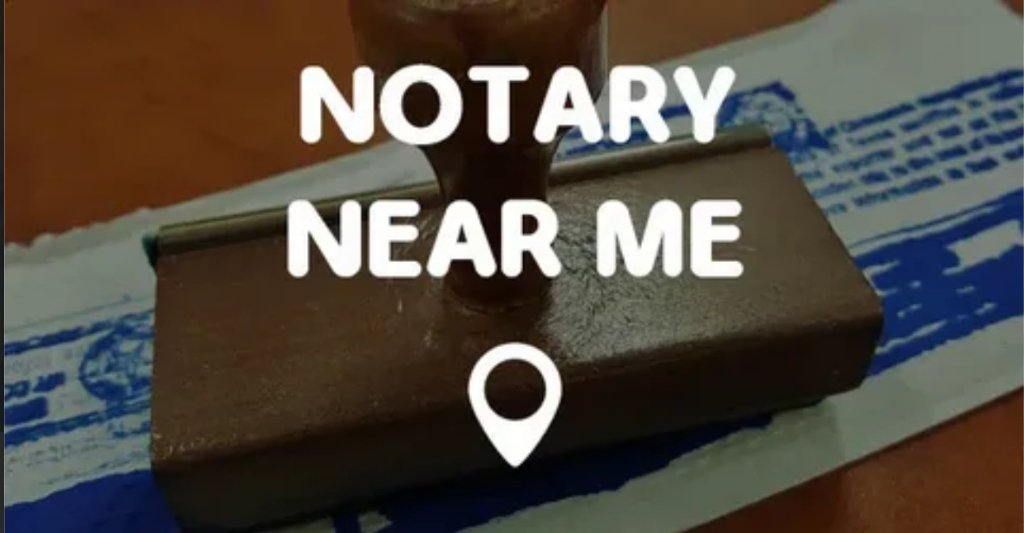News
Finding Your Nearest Notary: Your Complete Guide to Quick and Easy Notarization

Hey there! So you need to get something notarized, right? Don’t worry, I’ve got you covered. Finding a notary near you is actually way easier than you might think. Let me walk you through everything you need to know about locating the nearest notary and getting your documents signed without any hassle.
What Exactly Does a Notary Do?
Before we dive into finding one, let’s talk about what notaries actually do. A notary public is someone officially authorized by the state. They verify your identity and witness you signing important documents. Think of them as your official “yes, this person really signed this” stamp of approval.
Notaries help prevent fraud and make sure everything is legit. They check your ID, watch you sign, and then put their official seal on your paperwork. Pretty straightforward, right? You’ll need a notary for things like property deeds, power of attorney forms, and affidavits.
Why You Might Need a Notary Service
Life throws all kinds of paperwork at us. Maybe you’re buying a house and need your mortgage documents notarized. Or perhaps you’re setting up a power of attorney for a family member. Sometimes you need affidavits for legal matters or real estate transactions.
Banks often require notarized documents for big financial moves. If you’re traveling abroad, you might need notarization for visa applications. Estate planning documents almost always need that official notary seal too. The list goes on, but the good news is that notaries are everywhere once you know where to look.
How to Find the Nearest Notary in Your Area
Alright, let’s get to the good stuff. Finding a notary close to you is super simple these days. You’ve got several great options, and I’ll break them down for you.
Check Your Local Bank or Credit Union
Here’s an insider tip: your bank probably has a notary on staff. Most banks and credit unions offer free notary services to their customers. Just call ahead to make sure someone’s available. Some banks require an appointment, while others do walk-ins.
Credit unions are especially great for this. They often provide notary services at no charge for members. Even if you’re not a member, they might still help you out for a small fee.
Visit Nearby Shipping and Business Centers
UPS stores are like notary goldmines. Almost every UPS Store location has a notary public on site. They charge a fee, but you don’t need an appointment usually. Just pop in during business hours and you’re good to go.
FedEx Office locations often have notaries too. Office supply stores like Staples sometimes offer notarization services as well. These places are super convenient because they have extended hours. You can swing by after work or on weekends.
Look for Mobile Notary Services
Want someone to come to you? Mobile notaries travel to your location. They’ll meet you at your home, office, or even a coffee shop. This is perfect when you can’t leave the house or have a stack of documents.
Mobile notaries charge more because they’re coming to you. But the convenience is totally worth it sometimes. Search online for “mobile notary” plus your city name. You’ll find plenty of options with reviews and pricing.
Use Online Notary Directories
The internet makes finding a nearest notary incredibly easy. Websites like the National Notary Association have search tools. Just type in your zip code and boom – instant results.
These directories show you notaries near you with ratings and contact info. You can see their hours, fees, and specialties. Some notaries focus on real estate while others handle all document types.
Try Online Notarization
Here’s something cool: remote online notarization is now legal in many states. You can get documents notarized via video call. It’s fast, easy, and you don’t even need to leave your couch.
Companies like Notarize and NotaryCam offer online services. You’ll need a computer or smartphone with a camera. The notary verifies your identity through video and digital documents. The whole process takes about 15 minutes usually.
What to Bring When You Visit a Notary
Don’t show up empty-handed! You’ll need a few things to make the process smooth. First and most important: bring a valid government-issued photo ID. Your driver’s license, passport, or state ID card works perfectly.
Make sure your documents are complete but unsigned. The notary needs to watch you sign in person. Bring all parties who need to sign if it’s a joint document. Oh, and bring cash or a card for the fee.
Some notaries only accept cash, so it’s good to have both options. Know what type of notarization you need too. Is it an acknowledgment, jurat, or oath? Don’t worry if you’re not sure – the notary can help figure it out.
How Much Does Notary Service Cost?
Let’s talk money. Notary fees vary by state and location. Each state sets maximum fees that notaries can charge. In most places, you’re looking at $5 to $15 per signature.
Banks often notarize documents for free if you’re a customer. Mobile notaries charge more because of travel time. Expect to pay $25 to $100 for mobile services depending on distance.
Online notarization usually costs between $25 and $50 per document. It might seem pricier than in-person, but you’re paying for convenience. Some employers and membership organizations offer free notary services to members too.
Tips for a Smooth Notarization Experience
Here are some pro tips I’ve learned over the years. Always call ahead to confirm the notary is available. Nothing’s worse than driving across town for nothing.
Read through your documents before you go. Make sure everything is filled out except the signature lines. If something seems confusing, ask the notary for clarification.
Bring multiple forms of ID if possible. Sometimes there are issues with expired licenses or unclear photos. Having a backup helps avoid problems. Also, make sure you understand what you’re signing.
The notary can’t give legal advice, but they can answer basic questions. If you’re really unsure about something, consult a lawyer first. It’s better to be safe than sorry with important documents.
Understanding Different Types of Notarization
Not all notarizations are the same. An acknowledgment is when you sign before the notary. You’re confirming that you signed willingly and understand the document.
A jurat requires you to swear or affirm that the contents are true. The notary watches you sign and administers an oath. Copy certification is when a notary certifies that a copy matches the original.
Each type serves a different purpose. The document itself usually tells you what kind of notarization you need. When in doubt, ask the notary – they deal with this stuff every day.
Finding a Nearest Notary During Off Hours
Need notarization at weird times? Some notaries work evenings and weekends. Mobile notaries often have flexible schedules to accommodate your needs.
24-hour UPS stores sometimes have notaries available late. Call ahead though because staff schedules vary. Hospital notaries sometimes work night shifts for medical documents.
Online notarization is available around the clock in many cases. This is perfect for urgent situations or odd hours. Just make sure your state allows remote notarization for your document type.
Questions to Ask Before Choosing a Notary
Don’t be shy about asking questions. Find out what their fees are upfront. Ask if they have experience with your type of document.
Check if they’re available when you need them. Confirm what forms of ID they accept. Ask about their cancellation policy if you’re booking an appointment.
For mobile notaries, ask about their travel radius and additional fees. It’s also smart to verify they’re actually commissioned in your state. Most notaries are happy to answer these questions.
Why Location Matters When Finding a Notary
Finding the nearest notary saves you time and gas money. But location isn’t just about convenience. Local notaries understand state-specific requirements better.
Different states have different notary laws and procedures. A notary in your state knows exactly what’s needed. This reduces the chance of errors or rejected documents.
Plus, having a nearby notary means you can go back easily if needed. Sometimes you need multiple documents notarized over time. Building a relationship with a local notary can be really helpful.
Making Your Notary Visit Quick and Easy
Want to speed things up? Have all your documents organized and ready. Know exactly what needs to be notarized before you arrive.
Bring the right amount of cash if they don’t take cards. Show up a few minutes early if you have an appointment. This gives you time to review everything one last time.
Be prepared to answer questions about the document. The notary might ask about your signing intentions. This is normal – they’re just doing their job properly.
Your Next Steps
Now you know exactly how to find a nearest notary! Start with your bank or credit union for free services. Check out local UPS stores and shipping centers for convenience.
Consider mobile notaries if you need flexibility. Try online notarization for super quick turnarounds. Whatever option you choose, you’re now ready to get those documents notarized without stress.
Remember to bring your ID and unsigned documents. Call ahead to confirm availability and fees. And that’s it! You’ve got this. Getting your documents notarized doesn’t have to be complicated or stressful anymore.
Finding a notary near you is easier than ever before. With all these options available, you’ll have your paperwork done in no time. Good luck with your notarization, and I hope this guide made everything crystal clear for you!

 Blog8 months ago
Blog8 months ago[PPT] Human Reproduction Class 12 Notes
- Blog8 months ago
Contribution of Indian Phycologists (4 Famous Algologist)
- Blog8 months ago
PG TRB Botany Study Material PDF Free Download

 Blog8 months ago
Blog8 months agoCell The Unit of Life Complete Notes | Class 11 & NEET Free Notes

 Blog8 months ago
Blog8 months ago[PPT] The living world Class 11 Notes

 Blog8 months ago
Blog8 months agoPlasma Membrane Structure and Functions | Free Biology Notes

 Blog8 months ago
Blog8 months agoJulus General Characteristics | Free Biology Notes

 Blog8 months ago
Blog8 months agoClassification of Algae By Fritsch (11 Classes of Algae)













